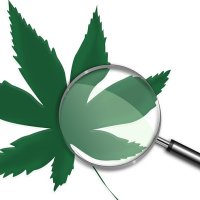The University of Vermont’s Pharmacology Department recently announced a new course dealing with medical cannabis; possibly the first medical school in the USA to do so.
Pharm-372 is a Special Topics course in Pharmacology that will cover topics such as general cannabis biology, plant chemistry, different cannabis strains and the impact of cannabinoids in the human endocannabinoid system. Also covered will be the history of marijuana use and the current legislative and policy status quo.
The course is being developed by Karen Lounsbury, PhD and Wolfgang Dostmann, PhD, who are seeking to dispel myths and de-stigmatise medicinal cannabis; treating it as any other product used in pharmaceutical treatment and research.
The two hope to also develop a textbook as a result of their work and shorter courses for doctors wishing to learn more about prescribing cannabis.
“There are not enough clinical trials to suggest what the dosage should be, what the side effects are,” said Dr. Lounsbury.
Registration has been brisk since launched in mid-November. The course will kick off next year.
Vermont legalized medical marijuana in 2004. In order to gain access to medicinal cannabis, a person must be diagnosed with a debilitating medical condition by a health care professional. In Vermont, a registered patient can only obtain marijuana from a single, designated dispensary and only four dispensaries are registered and operating in the state.
As an example of the stigma still associated with medical cannabis – even in states permitting its use – Vermont’s Marijuana Registry is hosted under the Vermont Crime Information center web site.
Industrial hemp, which contains very low levels of the psychotropic compound THC, can also be grown in Vermont; but the amount of red tape involved and difficulties in legally sourcing seed means few farmers have grown the crop. It’s thought only nine growers planted a crop in the state in 2015.
The University of Vermont also obtained the two federal permits to legally import hemp seed with view to planting a crop this year, but by the time the University was given permission it was too late in the growing season to plant.


